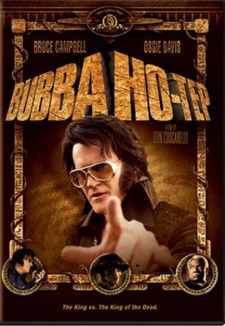A Lesson in Media Doublespeak
Okay boys and girls, today's lesson begins with vocabulary. Here are two terms you need to be aware of and comfortable using when studying misadventures in media - factuality and equivalency. Factuality, while rooted in the word fact, has more to do with perception. A statement can have varying degrees of factuality, depending on the issue and the person stating said "fact". Remember President Clinton's grand jury testimony, "...depends what your definition of the word is is...", that's factuality. Likewise, a person can have a high or low factuality rating, depending on his or her dexterity in dealing with the issues. A complementary term is equivalency, unrelated statements made by opposing commentators at irrelevant times used to equilibrate factuality. A good rule of thumb in dealing with issues of factuality and equivalency, "when in danger or in doubt, run in circles, scream and shout."
Next let's try a reading comprehension problem dealing with our two new words. Daniel Okrent has until recently been the ombudsman for the NYTimes, hired after their Jayson Blair troubles to review and advise on accuracy issues. He was interviewed recently by Salon (with a nod to Two Glasses). Let's read through an excerpt of what he has to say about working at the Times:
Gail [Collins - the op-ed page editor] didn't want me commenting on the opinion pages. I was hired by the news department and, despite the rabid assertions of the Times' enemies and detractors, the two really have nothing to do with each other. But [publisher] Arthur Sulzberger decided that I should be able to comment on the editorial pages as well, so it began with Gail being understandably leery: "Who is this person who is going to pass judgment on opinions?"
Then pretty early on in the job, I began to nag a couple of the columnists and Gail about the question of factual errors, or the allegation of factual errors. When I told Gail I was going to write about it, I said, "I want a statement: What's the policy? Why don't you have a policy?" And then she gave me a policy and I quoted from the policy in my column and I ran it in its entirety in my Web journal.
It's a very complicated issue about when is a fact not a fact in the context of opinions. I'll illustrate it: William Safire continued to refer to an al-Qaida's leader's connection to Saddam Hussein. The various government reports said there was no connection. Safire kept writing that there was a connection. Many people challenged him on it. I went to him on it. He said, "I know there's a connection."
Well, who is to say? Just because this report said so doesn't mean that there isn't a connection. He was relying on his sources. Many people thought I was a total wimp for not challenging him and insisting that there be a correction. But if you turn it around, and put it in the context of a Paul Krugman column, when Krugman makes an assertion that he knows to be the case, then in that case the Safire critic would probably defend Krugman. So when is this being motivated by ideology and when is it really being motivated by a quest for accuracy? Those are two different things and so you have to be really careful.
So using what we have learned, William Safire's belief there is a connection between al-Qaida and Saddam has a factuality of say 0, because it has been proven repeatedly to be untrue. Safire himself however must have a very high factuality rating, because even though what he claims as truth has been proven factually errant, he is given the benefit of doubt. Paul Krugman, on the other hand, has a low factuality rating, because Okrent questions his believability despite a lack of evidence on which to base questioning Krugman's accuracy. A blatant Safire untruth has the equivalency of any statement Krugman has ever made. Read the passage over a few times. Ready to move on?
Now let's try another reading and critical thinking exercise. Kenneth Tomlinson is the head of the Corporation for Public Broadcasting. He was on Bill O'Reilly's show recently. Lets read a bit of their conversation:
On the May 12 edition of Fox News' The O'Reilly Factor, O'Reilly asked Tomlinson, "Now, you said that you have never had any conversations with any Bush administration officials about PBS? Is that true?" Tomlinson replied, "That's true."
O'Reilly also asked Tomlinson whether he was "firing any Democrats" at CPB; Tomlinson replied, "No," adding: "No witch hunts in there at all."
At the conclusion of his interview, Tomlinson thanked O'Reilly and stated: "We love your show."
Use the previous example and this handy website to estimate the factuality of Ken Tomlinson, describe his factuality rating and provide an equivalency for his O'Reilly visit. Points will be given for originality, but obviously not for accuracy.


<< Home